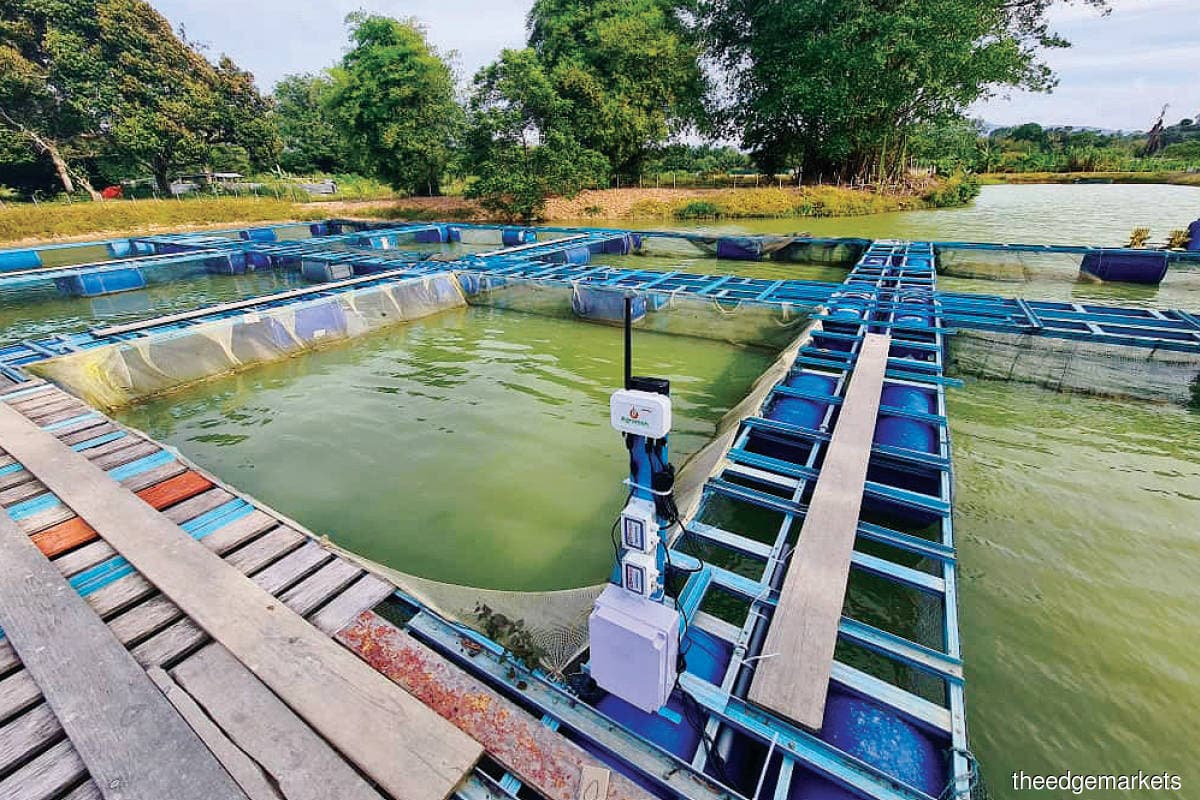
This article first appeared in Digital Edge, The Edge Malaysia Weekly on June 14, 2021 - June 20, 2021
Like many Malaysian graduates in electronics engineering, Teng Kong Leong began his career in the 1990s as an engineer at the big electrical and electronics (E&E) multinational companies in Penang.
He spent three years in AMD working on flash memory devices, seven years in Agilent Technologies researching motion control technologies, and three years in local company Micro Modular Systems (MMS) running research and development (R&D) activities.
“The good thing about working for a multinational company is the abundance of knowledge you can gain. Agilent had a pool of scientists in the US working on ideas that were not in the market yet, and I had access to them. I was very curious and kept interacting with them,” says Teng.
It is because of this experience that he learnt about microcontrollers, embedded systems and integrated chip design, among other things. This eventually led him to launch his own start-up in 2014 called Wondernica Research PLT.
“It was not easy for me to get out of a stable job and form my own company. But then, I had a near-death experience hiking up to the Everest base camp. A week after coming back, I told myself, ‘There is nothing more dangerous than that’, and resigned from my company,” says Teng.
Wondernica Research served the industry players in Penang by providing product development solutions. One day, when Teng was tasked with designing smart street lights, he realised the potential of the Internet of Things (IoT). By 2018, Wondernica Technologies Sdn Bhd, which provides end-to-end IoT solutions, was up and running.
“IoT is here to stay. We are targeting the smart cities trend. On the front end is where we have devices and sensors that are connected to the internet. Behind that are platforms run by artificial intelligence and even blockchain,” he says.
Agromon is the company’s smart agriculture IoT device. Users can plug in various sensors to the wireless transmitter, which can be connected to Sigfox, WiFi or LoRa networks.
“Aquaculture players use it to monitor water quality, dissolved oxygen and PH levels to ensure the shrimp or fish can survive. Vanilla farms monitor the temperature or humidity of the environment, while pineapple farms monitor the nutrient and PH levels of the soil. The data is transmitted to our smart city platform, which customers can view on their devices,” says Teng.
Meanwhile, its Smart Udara device is an outdoor environmental sensor that measures particulate matter, temperature and humidity. This product is popular in Thailand, says Teng. After these products have been installed, maintenance service is provided either on a monthly or quarterly basis.
From R&D to entrepreneurship
Taking this path has not been easy. The deployment of IoT is slow in Malaysia, Teng observes, with most companies only in pilot stages of implementation. “We mostly get business from Thailand and Indonesia. We are also expanding to Puerto Rico with our smart agriculture products,” he says.
The good news is that the pandemic has triggered more interest among local players. “We have over 100 pilot projects for our smart agriculture product now, covering roselle flowers, durians, palm oil plantations, as well as aquaculture farms,” says Teng.
The company also expanded into cold chain logistics solutions to better serve its clients. “They need to make sure that their produce is fresh when it’s transported. Our cold chain logistics IoT product monitors the temperature inside the truck,” he explains.
Again, this is currently running on a pilot basis. “This means we install 10 to 20 units of sensors in the clients’ trucks for a few months to test the solution,” he adds.
Most of the interest for IoT is coming from private farming enterprises that own huge hectares of land and have enough capital to deploy technological solutions. What about smallholder farmers in Malaysia, many of whom are in the B40 socioeconomic strata?
“Some banks are giving funding to farmers as part of their corporate social responsibility programmes to encourage them to use IoT products and increase their yield,” says Teng.
For instance, Agrobank and the Malaysian Technology Development Corporation signed a memorandum of understanding in April to provide funding for 200 entrepreneurs in the agriculture sector to adopt technology.
Installing an IoT system from Wondernica can cost less than RM2,000, according to Teng, depending on the complexity of the application. Since the company designs its own hardware and software, it can keep the costs relatively low, he adds.
“Once an engineer, always an engineer. I still write software and go on the ground. We design specialised sensors and get the more common sensors off the shelf. Other IoT companies only do hardware or software; we do both,” says Teng.
Given the slow adoption of IoT in Malaysia, he hopes to expand more aggressively abroad, especially to Indonesia, Thailand and the US.
Reflecting on his journey, Teng shares that few of his peers from his days of working in E&E multinational companies have taken his route of becoming an entrepreneur. It is difficult to do so without sufficient capital.
“Working in a multinational company is comfortable. It’s not easy to start your own business. Every day, you sleep only three to four hours and you have to work very hard. Only those who have the passion would do it. But it’s different in countries like Taiwan. I think their mindset is different and they’re willing to take the risk,” says Teng.
Save by subscribing to us for your print and/or digital copy.
P/S: The Edge is also available on Apple's AppStore and Androids' Google Play.


